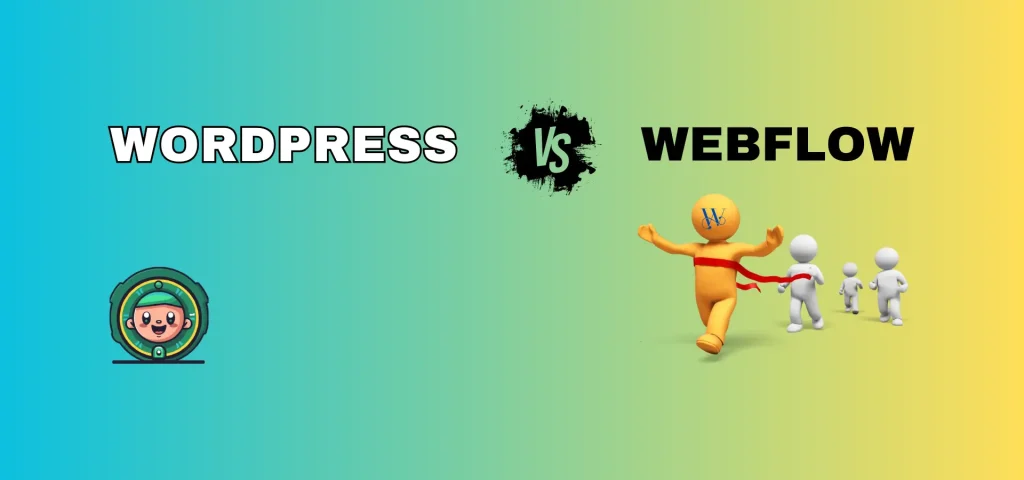Dive into the crucial differences between Webflow and WordPress, focusing on coding flexibility, community support, and optimisation tools. Discover why WordPress is often the preferred choice for those seeking speed and reliability in web development.

Let’s go through the main comparison points between Wordpress and Webflow and how they affect site performance:
Coding flexibility
WordPress excels in coding efficiency, offering a flexible environment that empowers developers to create high-speed websites. On the flip side, Webflow’s reliance on a visual design and no-code approach might lack the coding depth and flexibility required to achieve optimal speed performance.
Let’s not overlook the importance of the developer’s skills when assessing the speed of each platform. The coding expertise of the developer remains a critical factor in optimizing the performance of either platform. This highlights the importance of choosing a platform that aligns with the skill set of the development team to ensure maximum speed and efficiency in website development.
Considering these two factors, the developer’s proficiency and the coding flexibility of the platform, it becomes evident that WordPress holds an edge when optimizing for speed. The inherent coding flexibility of WordPress allows developers to fine-tune and optimize the website’s performance, ensuring a faster and more efficient user experience.
Power of Community
WordPress has a big and varied community, bringing in lots of different perspectives and experiences. People in this community are quick to help out when users face problems, making it a really helpful resource for all skill levels. The WordPress community works together to keep making the platform better, always moving forward and staying up-to-date with industry standards. Thanks to its long history, there’s already a lot of answers to many common problems. If you’re facing an issue, chances are someone has asked about it before, and you’ll find a solution in no time.
In contrast, Webflow also nurtures a community-driven environment on a smaller scale. While both platforms encourage collaboration, it’s worth noting that Webflow’s community, though smaller, is known for its tight-knit and innovative atmosphere. Users often praise the platform’s dedicated community for its creativity and niche-specific insights.
However, when evaluating the overall support landscape, the sheer size and diversity of the WordPress community continue to stand out as a substantial advantage. The extensive expertise available within the WordPress community, built over its long-standing presence, provides users with an unparalleled depth of resources and solutions. Objectively, for those prioritizing a robust and widely-supported network, the WordPress community remains the preferred choice for successful web development endeavours.
Optimization tools
When discussing making websites faster, we must dive into the world of optimization tools.
Tools and plugins for image optimization, caching and script optimization, if used well, can elevate a website’s performance to new heights.
While both platforms offer solutions, WordPress provides a more extensive toolkit, including a variety of plugins, caching options, and optimization best practices that contribute to superior speed performance.
Conclusion
If you’re contemplating a switch to WordPress and find yourself weighing the options between WordPress and Webflow, a comprehensive evaluation of factors such as coding proficiency, community support, and optimization tools is crucial.
WordPress emerges as the preferred choice for those seeking fast and reliable websites. Its vast community ensures a huge amount of resources and support, catering to users of all skill levels. The flexibility of WordPress’s coding environment accommodates both beginners and seasoned developers, fostering a robust ecosystem. Moreover, the extensive optimization tools available in WordPress, including image optimization, caching, and script optimization, provide a tailored approach to enhancing website speed.
While Webflow offers a user-friendly alternative, WordPress, with its longevity, community strength, and optimization capabilities, stands out as the optimal solution for those prioritizing speed and reliability.
